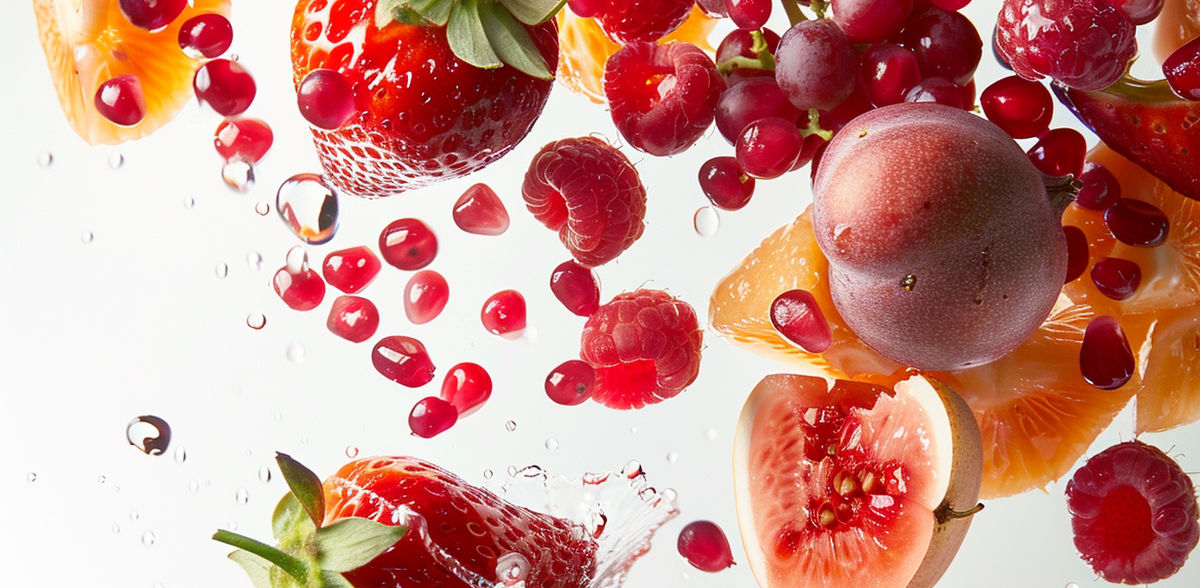Enjoy fresh summer fruit
Advertisement
Tips for storing summer fruit correctly and preventing food waste
Summertime is fruit time. Many local fruits are now in season. You can now find a wide selection on supermarket shelves, at market stalls or in farm stores. The colorful selection ranges from early apple varieties to various berries, grapes, peaches and apricots. But with the warm temperatures, the delicate fruit usually doesn't stay fresh for long. "If you store fruit correctly and process it quickly, less ends up in the garbage can. This is good for the environment and your wallet," explains food expert Hannah Zeyßig from the NRW consumer advice center. With these tips, nothing stands in the way of enjoying delicious fruit:
- Berries: Raspberries, blackberries and currants are available from regional growers in July and August. Unfortunately, these delicious fruits are very sensitive to pressure and susceptible to mold. Undamaged berries will keep for around three days in the fridge. However, it is best to eat these low-calorie sources of vitamins as quickly as possible or process them further, for example in a crispy and sour berry crumble. If there is a mouldy one in the pack, the neighboring fruit should be removed, as mould is "contagious". Gooseberries have the longest shelf life of all summer berries. They can even be kept for two to three weeks in a refrigerator with a zero-degree zone. Berries can also be freeze-dried or frozen.
- Peaches, nectarines, apricots: If you like stone fruit such as peaches, nectarines and apricots in summer, you should store them in a well-ventilated, dark and cool place, for example in the vegetable compartment of the fridge. They will then stay fresh for about a week. However, the fruit is very sensitive to pressure and must be transported and stored carefully so that the skin and flesh are not damaged. It is better to sort out rotten specimens. Like apples, they also give off the gas ethylene, which makes other fruit and vegetables ripen faster or even overripe. Very ripe peaches taste great grilled and can be combined with sweet or savory dishes.
- Melons: Chilled melon is refreshing and excellent for quenching thirst - after all, the large berry fruits are largely made up of water. Depending on how ripe they are, melons will keep for between one and two weeks in a cool, dark room. Once cut, water, honey or cantaloupe melons should be kept in the fridge. Cover the cut surface - for example with a plate - and eat the melon within one to two days. Leftover melon pieces taste good in a salad or can be pureed in a blender to make a smoothie or juice. Those who like to experiment can also use the white part of the rind. For example, pickled sweet and sour in Japanese as a side dish or boiled down into jam according to the Romanian recipe "Dulceata de coji de pepene rosu".
- Apples: Whether green, yellow or red, apples are the Germans' favorite fruit. We harvest early varieties from August, such as Grafensteiner and Holstener Cox. Summer apples are less storable than autumn apples - but have a finer taste. However, they also like it cool and are in the right place in the fridge if there is no cold cellar available. A decorative but warm place in the fruit bowl is less suitable. A chilled apple also tastes particularly good on hot summer days. Shrivelled apples can be reduced to puree or, depending on the variety, used for baking. You can enjoy the puree on its own or use two to three tablespoons as a substitute for an egg when baking.
Note: This article has been translated using a computer system without human intervention. LUMITOS offers these automatic translations to present a wider range of current news. Since this article has been translated with automatic translation, it is possible that it contains errors in vocabulary, syntax or grammar. The original article in German can be found here.
Other news from the department business & finance
Most read news
More news from our other portals
© 1997-2025 LUMITOS AG, All rights reserved

































































